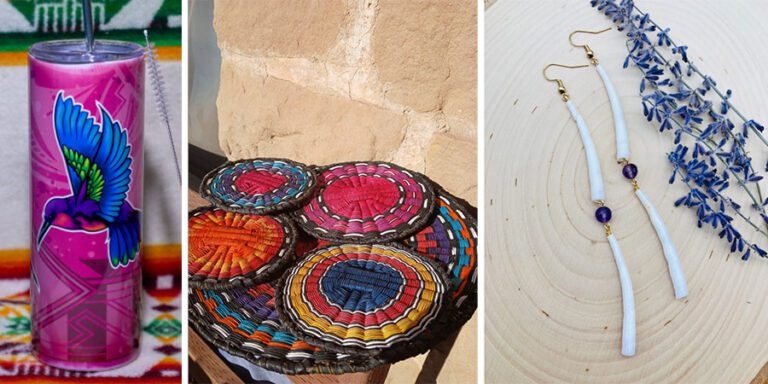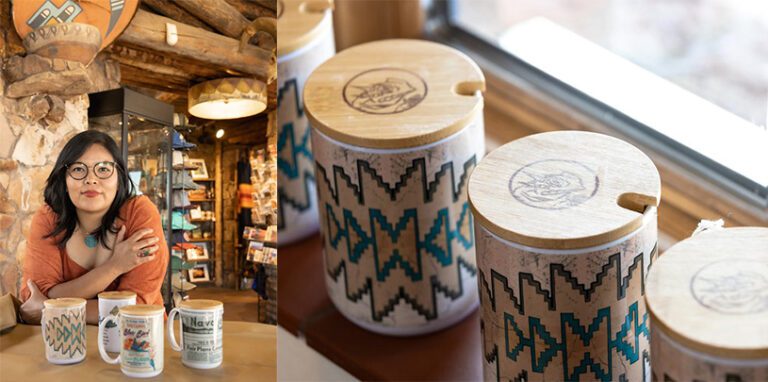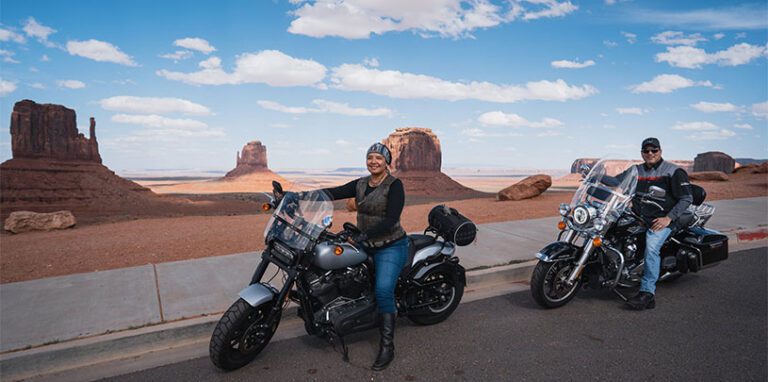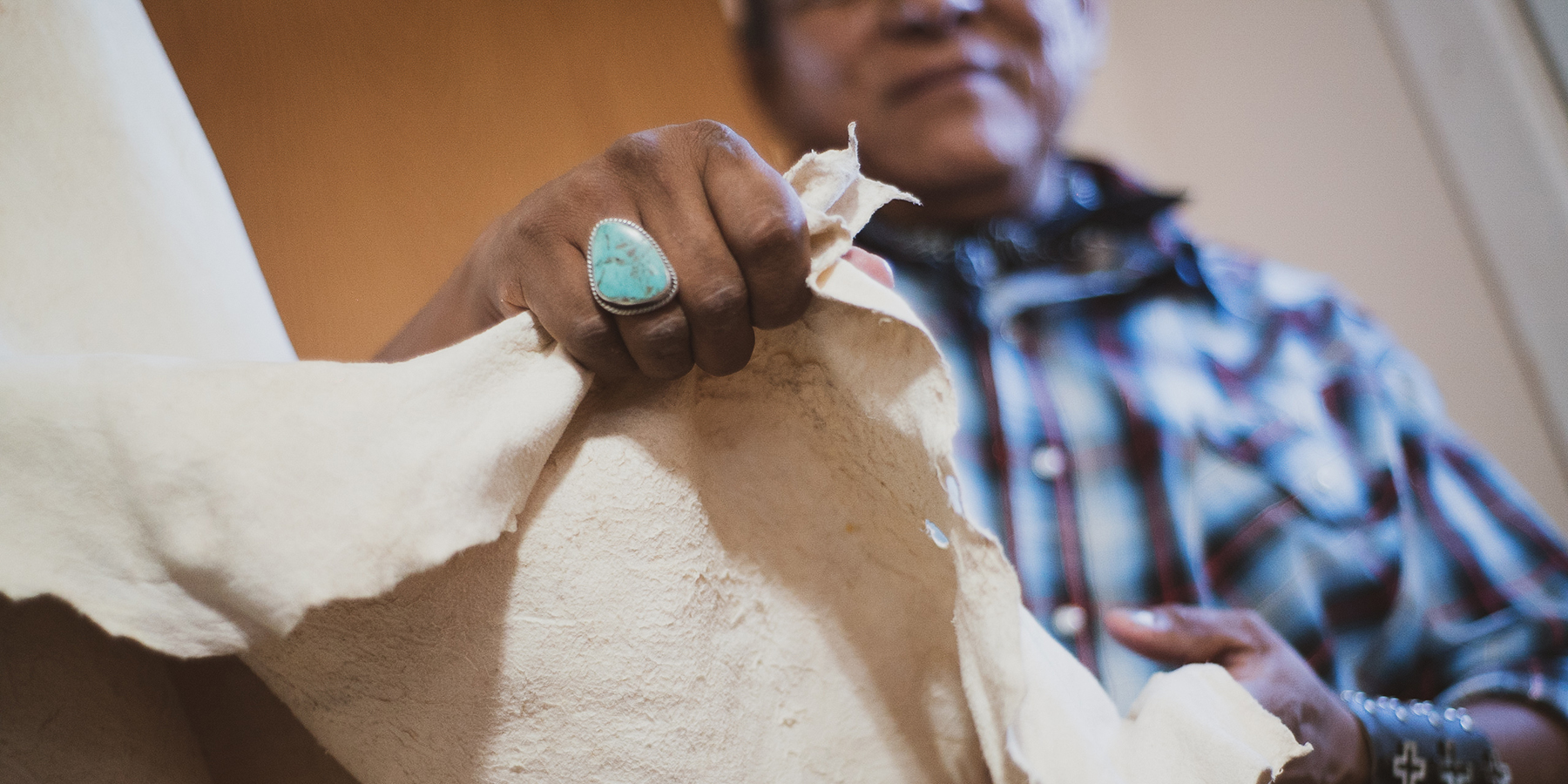
Supporting Native Economies
Shifting power to Native communities as they renew their economies.
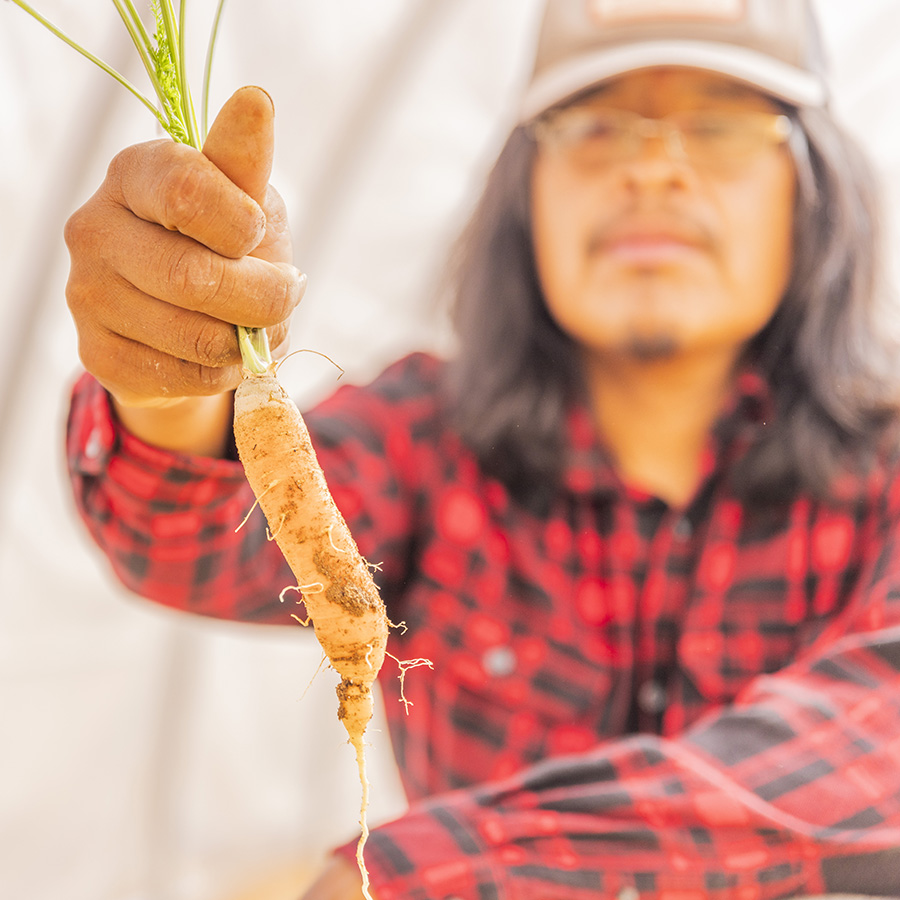
Native cultures in the Southwest innovated and prospered for thousands of years before white colonists arrived.
Robust trade networks connected tribes across the Americas. Indigenous peoples exchanged goods, shared knowledge, cultivated crops, made art, freely practiced their spirituality, conducted ceremonies, and built vibrant cultures and economies.
But as the U.S. government violently forced capitalism and top-down control onto tribes, Native peoples were stripped of their traditional sources of wealth and cut off from their dynamic Native economies.
Innovation, creativity, and traditional knowledge
Now, Native communities are renewing their economies. They are combining modern technologies with traditional knowledge to provide for basic needs, reflect cultural values, and heal the air, water, and land from decades of damage.
This process is called a just transition
Building a more inclusive and equitable Grand Canyon economy
Grand Canyon National Park is an economic powerhouse in northern Arizona. But very few of the park’s tourism dollars reach the 11 associated tribes of the Grand Canyon.
Native entrepreneurs, artists, community leaders, National Park service employees, and many others are laying the foundation for a more equitable Grand Canyon economy that centers, advances, and respects Native cultural values through the Emergence Economic Network.
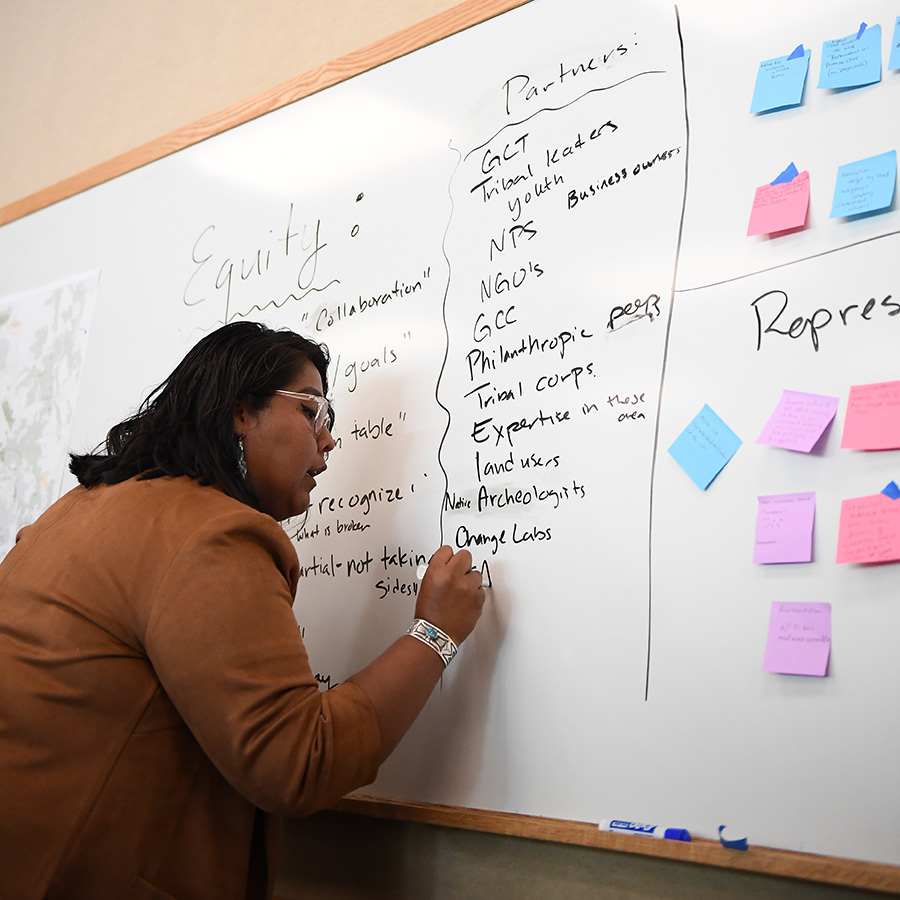
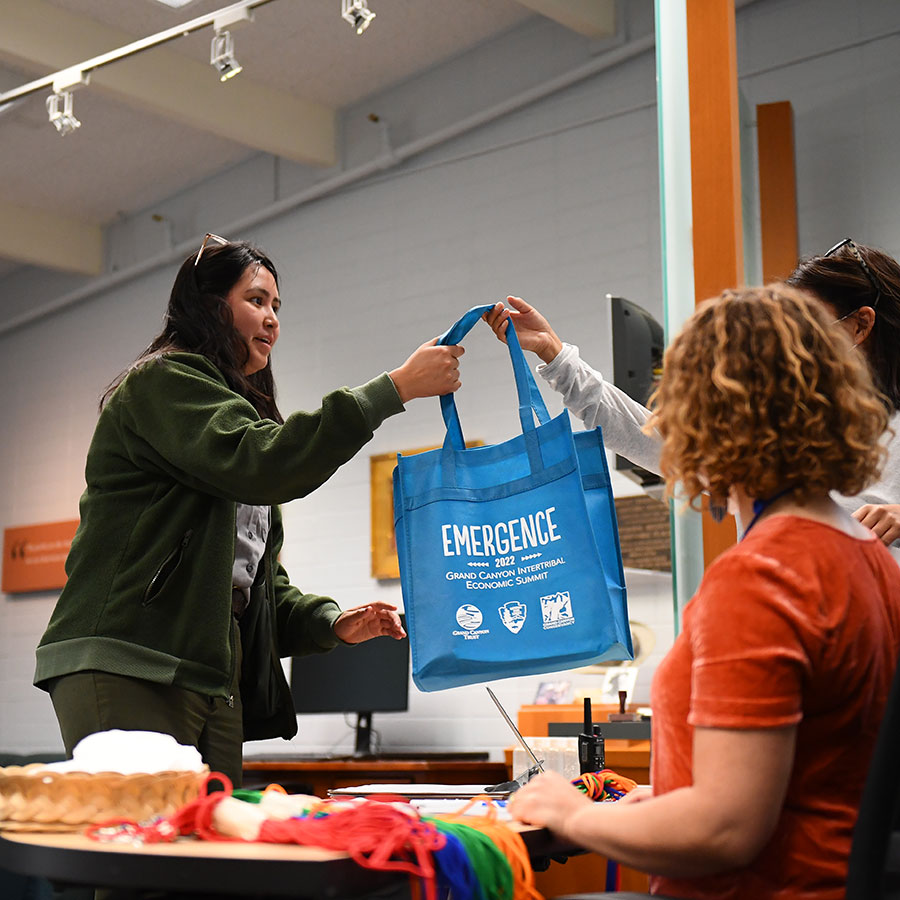
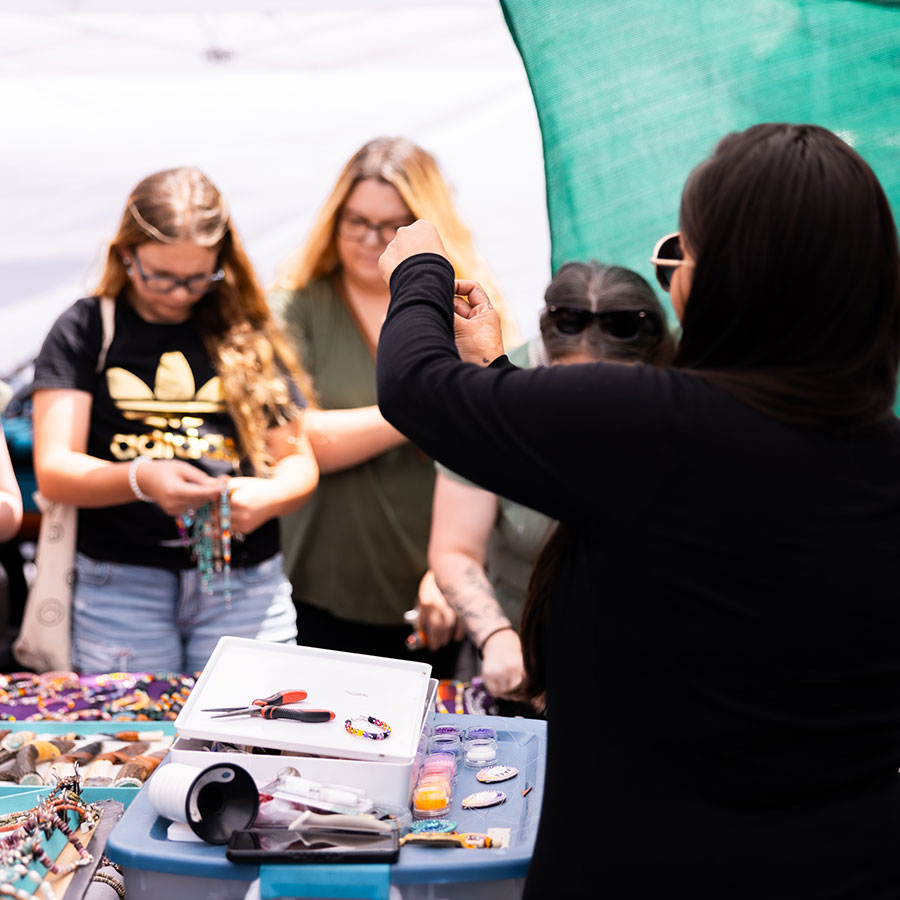

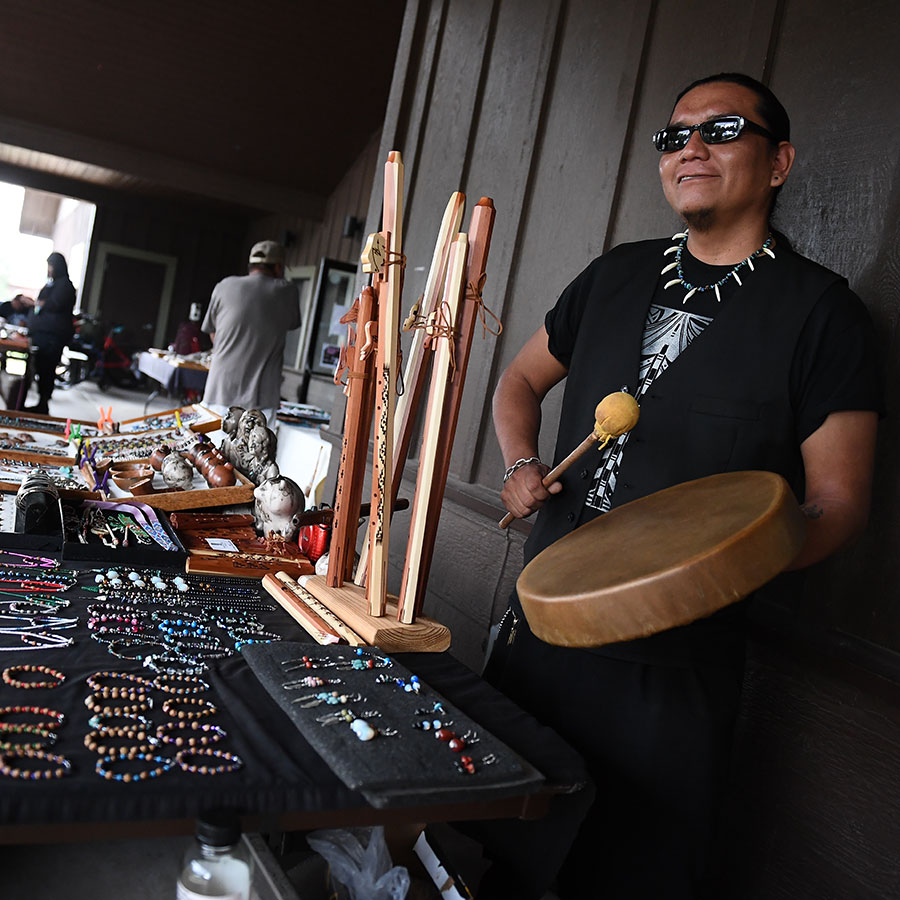

Gift guide
Grand Canyon Native Artists
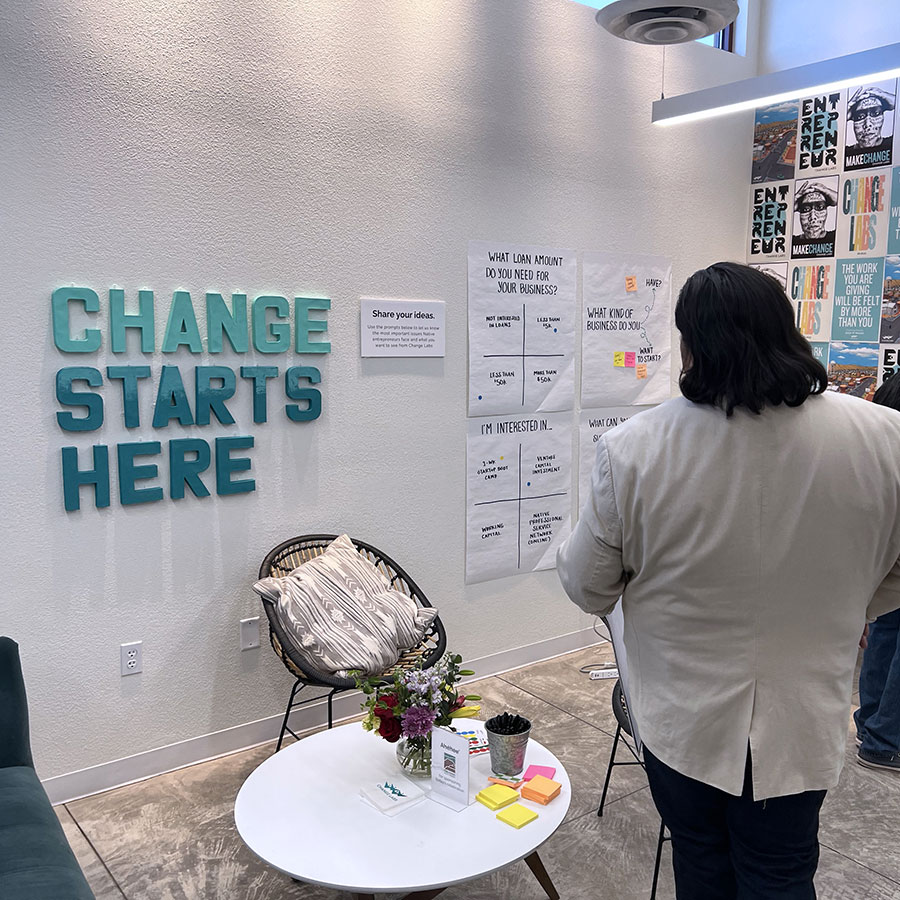
Small businesses drive healthy economies
Change Labs, a Native-led entrepreneurship hub on the Navajo Nation, is breaking down barriers for small business owners on tribal lands by offering business coaching, a brick-and-mortar workspace, workshops, financial education, and more.
Change Labs is also making it easier for entrepreneurs to get business loans through the Navajo Small Business Credit Initiative, a partnership with the Navajo Nation and the U.S. Department of Treasury.
The Grand Canyon Trust is proud to partner with Change Labs to help entrepreneurs realize their dreams and build strong, resilient, and culturally respectful economies across Native America.
“Our people have always been entrepreneurs, trading our goods, customs, and artwork with tribes throughout the Southwest. With a little bit of support, we can cultivate that spirit.”
Native American Economic Initiatives Director
Farmers feeding families, cultures, and economies
Native peoples have been growing food for generations. Not only is farming a way of life and a cultural practice, but it also cultivates strong local economies.
The farmers of the Little Colorado River Agricultural Cooperative are working together to turn the Little Colorado River area into a regional breadbasket. By sharing resources, hosting workshops, and selling fresh, healthy foods like corn, squash, melons, greens, beans, and more at local farmers markets, the co-op is reclaiming the power of food to shape their own food systems and nourish their communities.
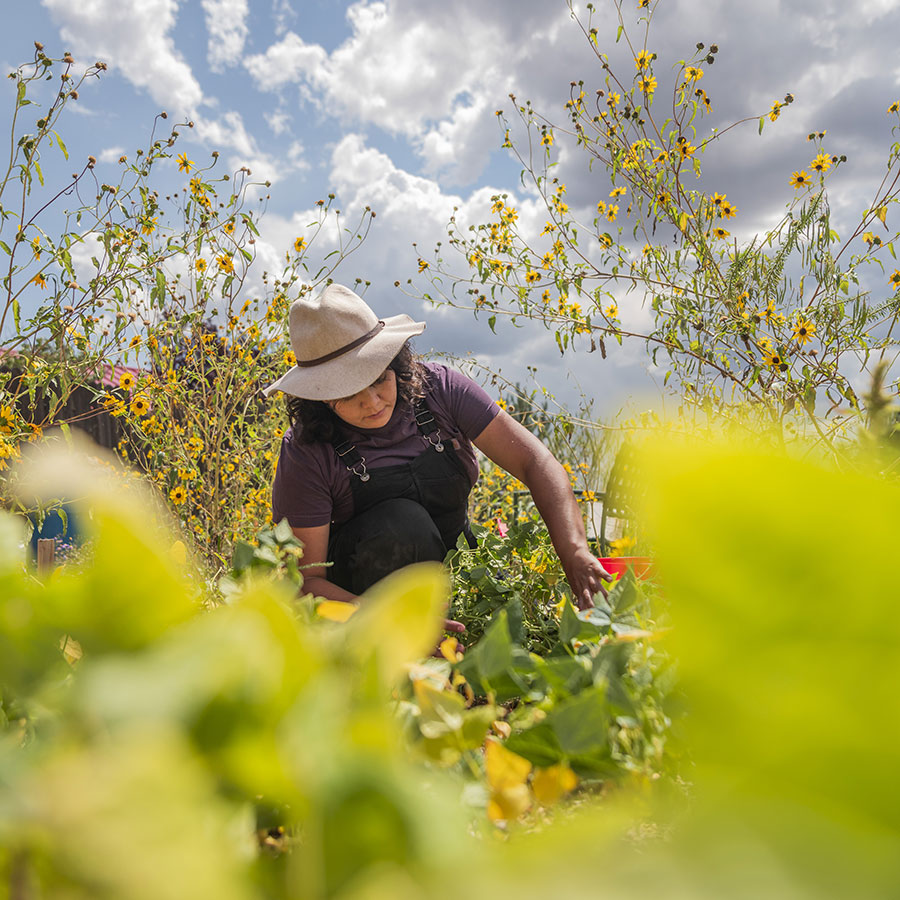
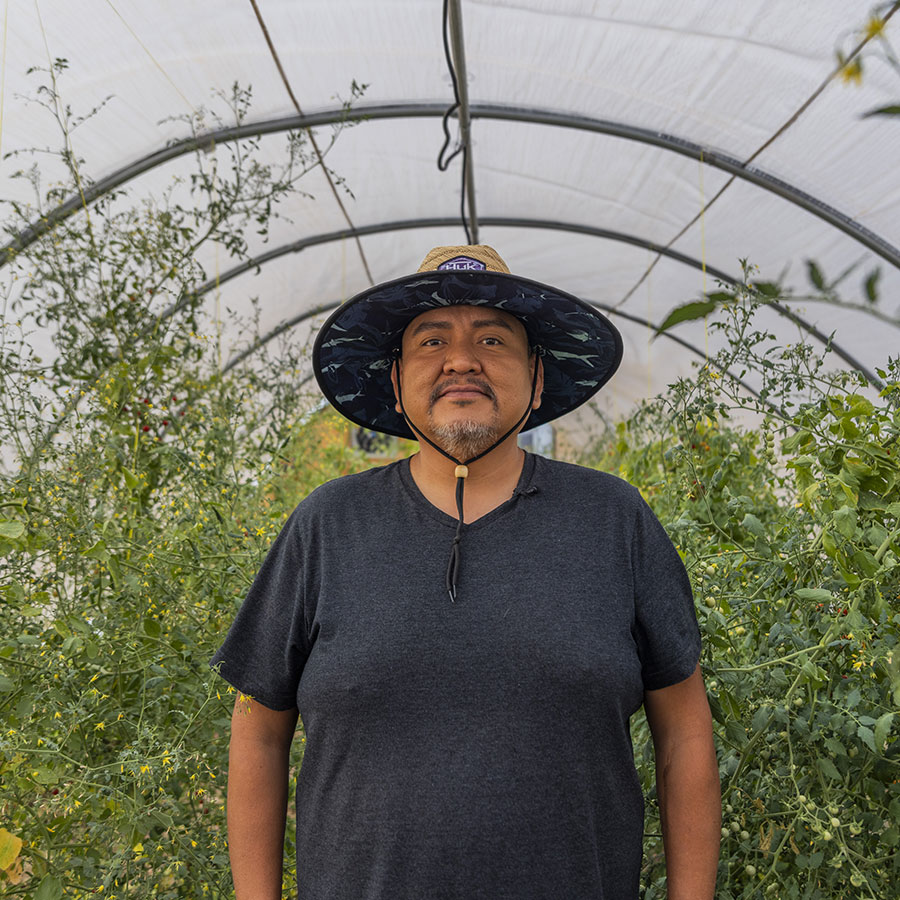
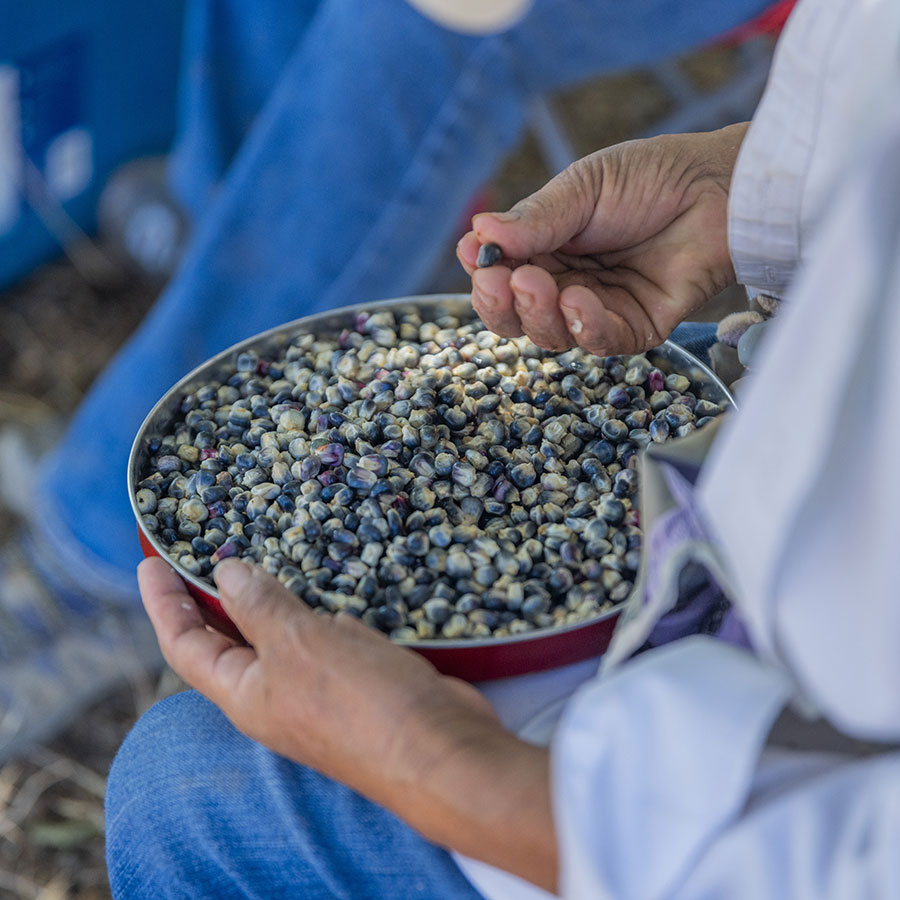
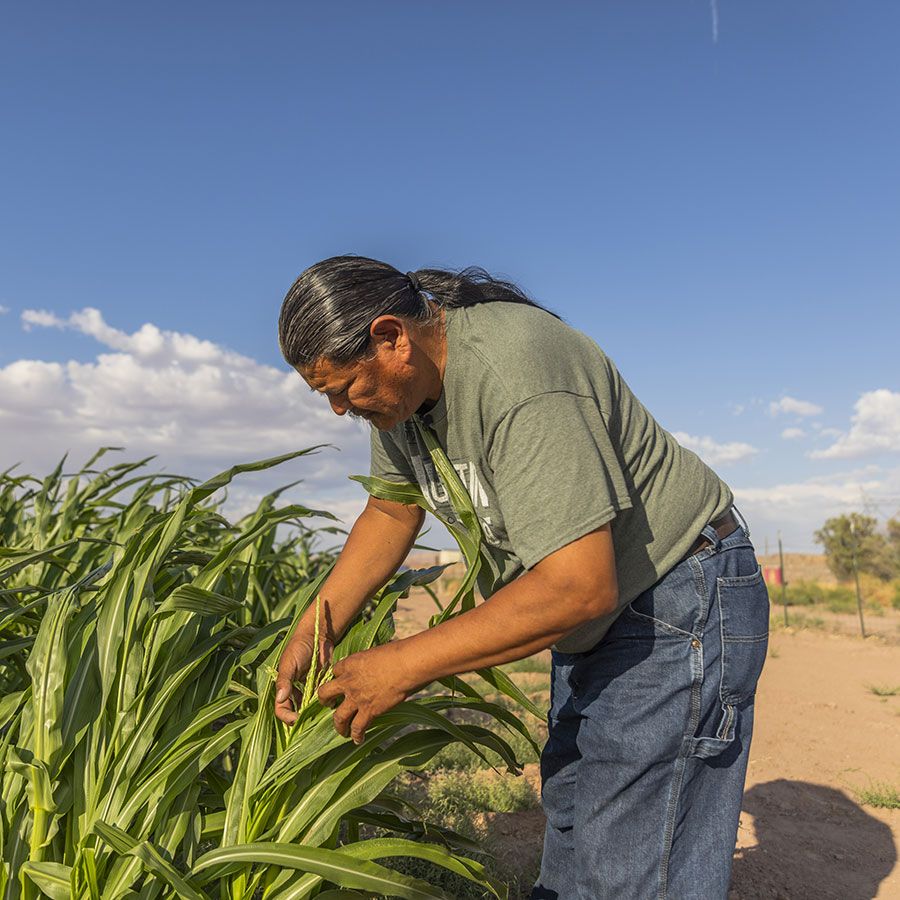

Legacy of resource extraction on tribal lands
Early tribal economic-development models have made it easy for corporations to extract natural resources, like coal and uranium, from tribal lands.
These extractive industries provide high-paying jobs, plus revenue to tribal governments, but the benefits are short-lived. The economy comes to a grinding halt when the resource that’s being extracted is gone. Mining has ravaged lands and polluted local groundwater.
Supporting a just transition on the Colorado Plateau
Momentum is building for the “just transition” movement, which is about shifting agency from the federal government and large corporations to local communities as they create a vision for the world they want and know is possible, from housing, to food systems, to basic infrastructure needs and beyond. It’s about replacing extractive economies with Native economies rooted in respect for the Earth. It’s about recognizing Indigenous rights, sovereignty, and self-determination. And it’s long overdue.
The Grand Canyon Trust supports community-based projects that are rooted in Indigenous knowledge and leadership and local economies that provide for the needs of the people while protecting the lands and waters of the Colorado Plateau.
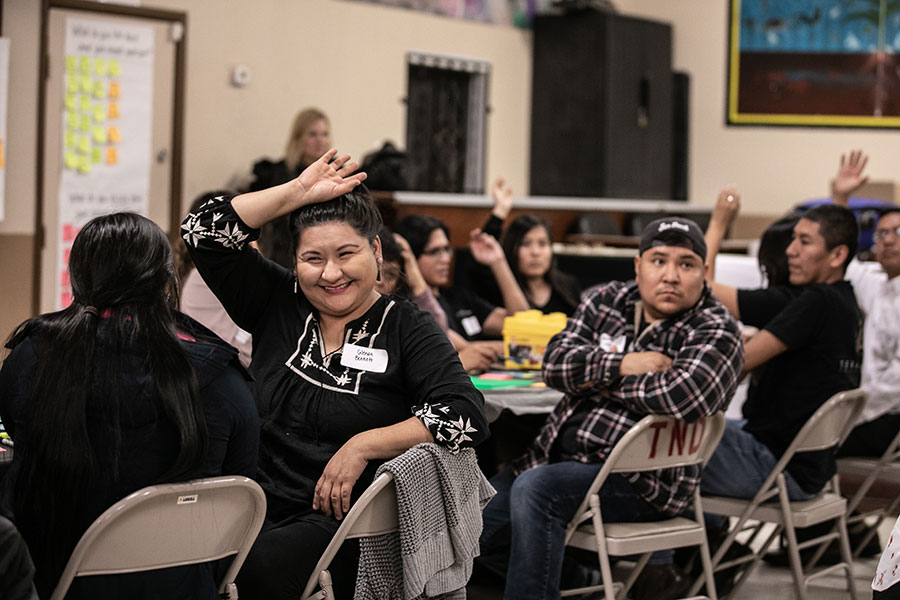
We facilitate conversations
We convene gatherings and create space for communities, local organizations, and leaders to design their dream economies. Achieving an equitable economy requires local drivers of change.
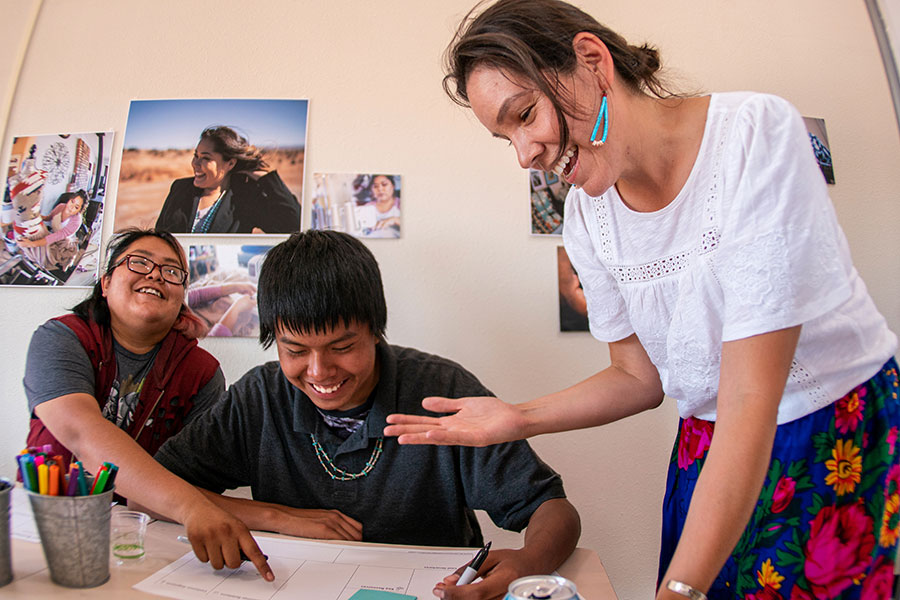
We help find resources
The Trust helps locate investment dollars to design and build equitable partnerships that increase the resources available to communities for their sustainable economic development projects.
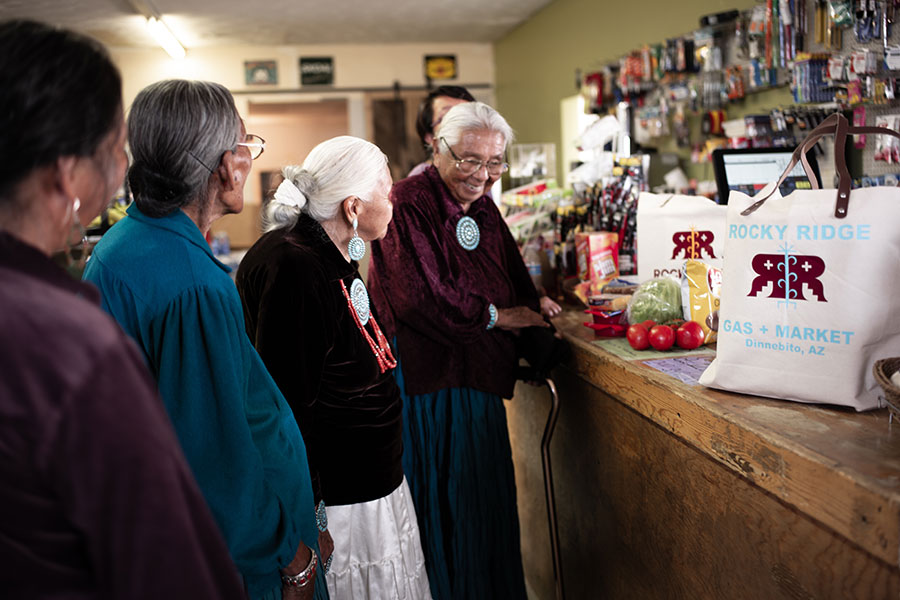
We support Native businesses
The Grand Canyon Trust is proud to partner with Change Labs to help individual Native entrepreneurs build their businesses and serve the needs of their communities.
How you can help support a just transition
Everybody has a role in a just transition, no matter where you live, no matter who you are. A just transition necessarily starts from within Indigenous communities, but it’s not all on their shoulders.
You can help support a just transition by supporting Native economies and paying attention to policies around power generation, water use, and climate change. Collectively, we need to rethink our economic systems, figure out how to live in balance with nature, and put sustainability in place for all communities.
